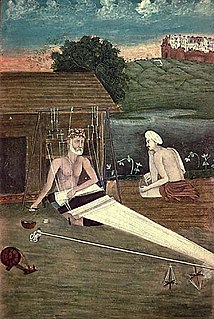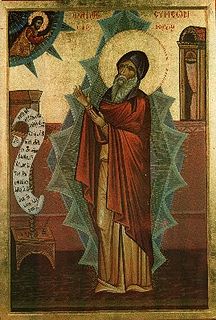 W
WAli Ahmad Said Esber, also known by the pen name Adonis or Adunis, is a Syrian poet, essayist and translator. He led a modernist revolution in the second half of the 20th century, "exerting a seismic influence" on Arabic poetry comparable to T.S. Eliot's in the anglophone world.
 W
WAhmad NikTalab was an Iranian poet, author, and linguist.
 W
WMīān Muhammad Bakhsh was a Punjabi Muslim Sufi mystic and poet. He is especially renowned as the author of a book of poetry called Sayful Mulūk as well as the romance tragedy Mirza Sahiban. He was born in a village called Khari Sharif, situated near Mirpur.
 W
WShah Abdul Latif Bhittai was a Sindhi Philosopher, Sufi scholar, mystic, saint, and poet, widely considered to be the greatest Muslim poet of the Sindhi language. He is also known as the poet of Sindh.
 W
WFrancis Brabazon was an Australian poet and a member of Meher Baba's mandali.
 W
WTajuddin Chishti also called Taj Sarwar Chishti was a Sufi saint of Chishti Order in Chishtian, Punjab.
 W
WDadu Dayal was a poet-sant from Gujarat, India, a religious reformer who spoke against formalism and priestcraft.
 W
WFarīd al-Dīn Masʿūd Ganj-i-Shakar was a 12th-century Punjabi Muslim preacher and mystic. who went on to become "one of the most revered and distinguished ... Muslim mystics" of the medieval period. He is known reverentially as Bābā Farīd or Shaikh Farīd by Muslims, Sikhs and Hindus of the Punjab Region, or simply as Farīduddīn Ganjshakar.
 W
WKhwāja Shams-ud-Dīn Muḥammad Ḥāfeẓ-e Shīrāzī, known by his pen name Hafez and as "Hafiz", was a Persian poet, whose collected works are regarded by many Iranians as a pinnacle of Persian literature. His works are often found in the homes of people in the Persian-speaking world, who learn his poems by heart and still use them as proverbs and sayings. His life and poems have become the subjects of much analysis, commentary and interpretation, influencing post-14th century Persian writing more than any other author.
 W
WHildegard of Bingen, also known as Saint Hildegard and the Sibyl of the Rhine, was a German Benedictine abbess, writer, composer, philosopher, Christian mystic, visionary, and polymath of the High Middle Ages. She is one of the best-known composers of sacred monophony, as well as the most-recorded in modern history. She has been considered by many in Europe to be the founder of scientific natural history in Germany.
 W
WSheikh Jamal-ud-Din Ahmad was a direct descendant of Imam Abu Hanifa, the renowned Sunni-Persian jurist of Islam. He was born at Ghazni, (Khorasan) which is in Modern-day Afghanistan, in 583 A.H.. He was five years old when his family came to Hansi. He became a disciple of Baba Fariduddin Ganjshakar at the age of 50. He learnt deeply and served devotedly.
 W
WKabir Das was a 15th-century Indian mystic poet and saint, whose writings influenced Hinduism's Bhakti movement and his verses are found in Sikhism's scripture Guru Granth Sahib. His early life was in a Muslim family, but he was strongly influenced by his teacher, the Hindu bhakti leader Ramananda. Kabir was born in the Indian city of Varanasi.
 W
WPir Hadi Hassan Bux Shah Jilani, commonly known by the title Hadi (1846–1900), was an eminent Sufi saint and poet from Sanghar in modern-day Pakistan who belonged to Qadiriyya Sufi order. He was born at Dargah Bhuro Bhawan Shah Jilani near Hyderabad Sindh and lived most of his life in Duthro Sharif Sanghar Sindh after traveling through Sindh to spread Iaspam and Sufism. He wrote his poetry in many languages, mostly in Sindhi but also in Urdu, Persian and other languages. The annual Urs of Hadi take place in the month of Jumada al-Awwal in Duthro Sharif Sanghar.
 W
WJalāl ad-Dīn Muhammad Rūmī, also known as Jalāl ad-Dīn Muhammad Balkhī, Mevlânâ/Mawlānā, Mevlevî/Mawlawī, and more popularly simply as Rumi, was a 13th-century Persian poet, Hanafi faqih, Islamic scholar, Maturidi theologian, and Sufi mystic originally from Greater Khorasan in Greater Iran. Rumi's influence transcends national borders and ethnic divisions: Iranians, Tajiks, Turks, Greeks, Pashtuns, other Central Asian Muslims, and the Muslims of the Indian subcontinent have greatly appreciated his spiritual legacy for the past seven centuries. His poems have been widely translated into many of the world's languages and transposed into various formats. Rumi has been described as the "most popular poet" and the "best selling poet" in the United States.
 W
WSachal Sarmast or Sacho Sarmast (1739–1827), born Abdul Wahab Farooqi was a prominent Sindhi Sufi poet from Sindh in modern-day Pakistan.
 W
WAlfred Schuler was a German classicist, esotericist, ceremonial magician, mystagogue, writer, poet, and independent scholar. He was a co-founder and central esoteric figure of the Munich Cosmic Circle, a prominent group of Munich-based writers and intellectuals. Furthermore, he was a notable influence to poet Stefan George and philosopher Ludwig Klages, of whom he was a life-long friend, as well as other members of the Circle. The majority of his literary output was not published until after his death.
 W
WWaris Shah was a Punjabi Sufi poet of the Chishti order, known for his contribution to Punjabi literature.
 W
WSultan Bahu was a Sufi mystic, poet, and scholar active during the Mughal empire mostly in the Punjab region. He belonged to Qadiri Sufi order, and founded the mystic tradition known as Sarwari Qadiri.
 W
WSymeon the New Theologian was a Byzantine Christian monk and poet who was the last of three saints canonized by the Eastern Orthodox church and given the title of "Theologian". "Theologian" was not applied to Symeon in the modern academic sense of theological study; the title was designed only to recognize someone who spoke from personal experience of the vision of God. One of his principal teachings was that humans could and should experience theoria.
 W
WSandu Tudor was a Romanian poet, journalist, theologian and Orthodox monk. Having had an adventurous youth, he first became known in the late 1920s, when he contributed to the modern Orthodox revival, rallying with the journal Gândirea. Although a traditionalist and a critic of materialism, he was closely associated with the modernist scene, and generally supported left-wing causes. Tudor was also a scandal-prone journalist and newspaper owner, who faced accusations of slander and was avoided by his peers.
 W
WUvavnuk was an Inuk woman born in the 19th century, now considered an oral poet. The story of how she became an angakkuq, and the song that came to her, were collected by European explorers of Arctic Canada in the early 1920s. Her shamanistic poem-song, best known as "Earth and the Great Weather". has been anthologised many times.